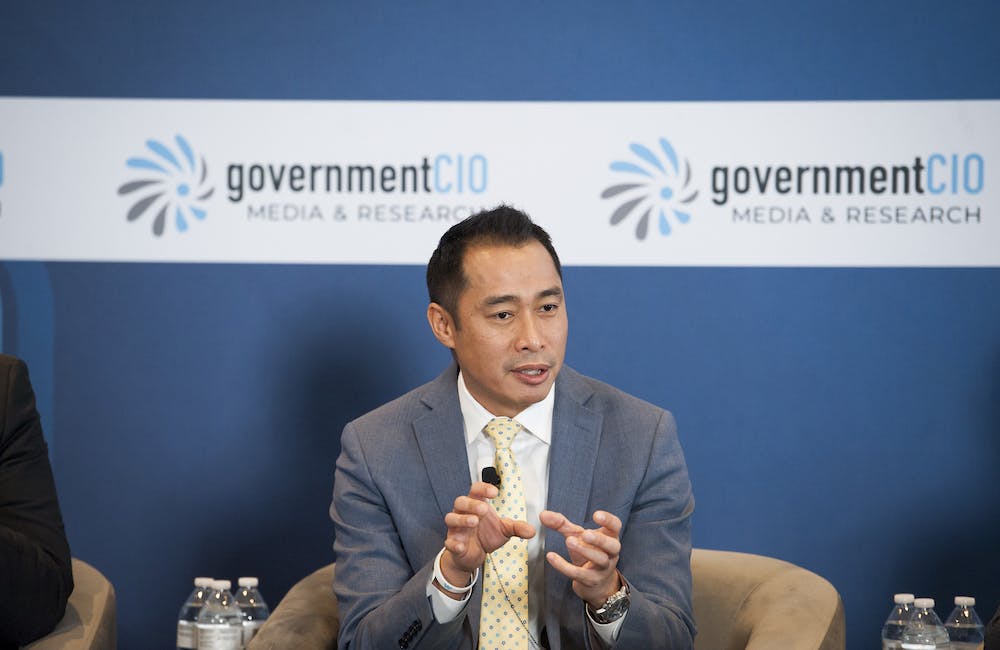HHS Establishes ‘AI Ambition’ in New Strategy
The agency emphasizes partnerships, research in AI and a new AI Council, which Chief AI Officer Oki Mek will helm.

The Department of Health and Human Services released its Artificial Intelligence Strategy Monday after promoting Senior Advisor to the CIO Oki Mek as its chief AI officer.
HHS started developing the seven-page document in 2019 to focus on encouraging fluent, accelerated and scalable AI adoption across the agency, as well as establishing an AI Council to help oversee the agency’s overall AI growth and development.
“Together with its partners in academia, industry and government, HHS will leverage AI to solve previously unsolvable problems by continuing to lead advances in the health and wellbeing of the American people, responding to the use of AI across the health and human services ecosystem, and scaling trustworthy AI adoption across the department,” Mek said.
To realize it’s “AI ambition,” HHS aims to lead in AI innovation across federal government by prioritizing AI application and development. The agency strives to do this by regulating and overseeing use of AI in the health industry and by providing grants to research that leverages AI-based solutions to deliver outcomes that support the agency’s mission.
“As a steward of federal funds, HHS will encourage grant recipients to consider AI’s utility and prioritize and enable programs, grants and research that use AI in trustworthy ways in order to more efficiently or effectively realize mission impact,” the strategy said. “These efforts include, but are not limited to, advancing biomedicine through AI-enabled insights into large datasets, predictive analytics in public health surveillance and responses, and advancing the use of cognitive technologies to identify new approaches to health and behavioral conditions with complex multifactorial causality.”
The strategy emphasizes collaborative AI development across common challenge areas, not just within HHS, but also across industry, academia, and state, local and tribal governments. Likewise, these partnerships would also involve identifying gaps across the health space that would involve the government and could benefit from AI applications.
HHS’s AI Council will oversee these matters. More specific to the council, however, the strategy calls for the council to execute four focus areas:
- Develop an AI-ready workforce and strengthen AI culture
- Encourage AI innovation and research and development
- Democratize foundational AI tools and resources
- Promote ethical, trustworthy AI use and development
The AI strategy’s release follows HHS CIO Perryn Ashmore’s appointment of Oki Mek as the agency’s new chief artificial intelligence officer this month. Mek will be one of the leaders of the AI Council.
In support of a recent executive order to promote the use of trustworthy AI, Mek will “lead the creation of a broad set of deliverables, including an annual inventory of AI use cases, participation on interagency bodies for advancing AI, and review existing AI systems to ensure consistency with this order. This is a first step in our recognition of the importance of AI in our future technology deliveries,” Ashmore told GovernmentCIO Media & Research.
Mek has been a career leader in adoption of emerging technologies in the federal space, including leading the first blockchain solution with an authority to operate in a civilian agency. In his prior roles, he also championed automation and cloud technologies.
This is a carousel with manually rotating slides. Use Next and Previous buttons to navigate or jump to a slide with the slide dots
-

IRS Tax Filing Pilot Part of Digital-First Customer Experience Plan
Many taxpayers increasingly expect flexible, easy and self-directed digital interactions, agency leaders said.
5m read -

Federal Agencies Make the Case for Quantum
Amid development of emerging technologies like AI and machine learning, leaders see promise in quantum computing.
6m read -

Cyber Incident Reporting Regulation Takes Shape
An upcoming CISA rule aims to harmonize cyber incident reporting requirements for critical infrastructure entities.
5m read -

Connectivity Drives Future of Defense
The Defense Department is strategizing new operating concepts ahead of future joint force operations.
8m read








